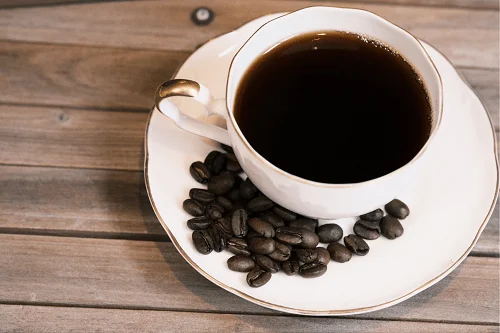Coffee
Why is Coffee Bitter and How to Fix It?
Why is coffee bitter and how to fix it? If you’re someone who has wondered why your coffee sometimes tastes bitter, you’re not alone. The bitterness in coffee can be off-putting, but the good news is that not all coffee has to be bitter. We’re here to shed light on the seven key reasons behind coffee bitterness and provide you with practical solutions to enjoy a smooth and delightful cup of coffee.
The Seven Culprits of Bitter Coffee
- Robusta coffee variety
- Dark roast coffee
- Steeping coffee too long
- Water is too hot
- Fine grind coffee
- Incorrect brew ratio
- Dirty equipment
1. Robusta Coffee Variety: The Bitter Culprit
The world of coffee is dominated by two main varieties: arabica and Robusta. Robusta coffee, known for its bitterness, makes up around 40% of the global coffee supply. It contains more bitter compounds, including chlorogenic acids, which contribute to its harsh taste. The higher caffeine content and lower sugar levels also play a role in its bitterness.
Experience the Unique Flavor Profile of Robusta Coffee – Recognizable by its Strong, Ashy Notes and Intense Bitterness. Often Used in Instant and Espresso Blends.
The flavors stem from three main reasons. First, Robusta boasts nearly double the chlorogenic acids of arabica, intensifying bitterness upon roasting.
Another Factor: Robusta holds about half the sugar content of arabica, diminishing sweetness and accentuating the bitterness in each sip.
Lastly, Robusta packs over double the caffeine punch of arabica, known for its bitterness. Surprisingly, caffeine’s impact on overall bitterness is less than commonly thought.
Solution: Choose Pure Arabica Coffee
To avoid the Robusta bitterness, choose 100% arabica coffee. Look for premium coffee packets labeled as such. Specialty coffee roasters offer pure arabica options that highlight the best qualities of the coffee bean.
2. Dark Roast Coffee: A Bitter Aftereffect
Dark roast coffee’s bitterness arises from the high roasting temperatures and extended roasting duration. The chemical reactions during dark roasting break down acids into bitter compounds, leading to an unpleasant taste.
Bitterness is a common trait across coffee varieties, as roasting transforms specific acids into compounds that contribute to the bitter taste.
During roasting, the chlorogenic acids within raw green coffee undergo dehydration and transformation into bitter chlorogenic acid lactones.
While chlorogenic acid lactones add bitterness to coffee, lighter roasts manage to balance this element without overpowering the overall flavor.
Yet, with dark roasting, the somewhat bitter chlorogenic acid lactones undergo further breakdown into phenylindanes, deepening the coffee’s bitterness.
Solution: Embrace Light Roast Coffee
Switch to light roast coffee from a reputable specialty coffee roaster. Light roasts retain the natural flavors, acidity, and sweetness of the coffee while minimizing bitterness.
3. Steeping Too Long: The Bitter Extraction
Over-steeping coffee leads to bitterness. Coffee extraction occurs in three stages: acids, sweet compounds, and bitter compounds. Stopping the brewing process before reaching the bitter stage is crucial to avoiding bitterness.
In a nutshell, extraction occurs in three stages:
- Acid extraction comes first.
- Followed by the extraction of sweet compounds.
- Lastly, bitter compounds are extracted.
To achieve the best brew, halt the coffee extraction after the sweet compounds emerge, but before bitterness sets in.
Consider toasting bread: as it heats, it browns; prolonged toasting burns it. Similarly, over brewed coffee ‘overcooks,’ resulting in bitterness.
Solution: Time Your Brewing
Use a timer to keep track of your brewing time. Just as cooking requires precision, brewing coffee consistently delivers better results.
4. Boiling Water Woes: A Bitter Brew
Scorching coffee with boiling water triggers bitterness. While hot water is necessary for optimal extraction, boiling water accelerates the release of bitter compounds.
Recall the three extraction stages? Higher water temperature speeds up the path to the third stage of bitter compounds.
Think of cooking, vegetables boil faster at a rapid boil than a simmer. Cooler water extends coffee brewing time.
Cold water can’t reach the third extraction stage, explaining the lack of bitterness in cold brew coffee.”
Solution: Optimal Water Temperature
Allow boiled water to cool for about a minute before pouring it over coffee grounds. Aim for water temperatures between 90°C and 96°C (194 – 205°F) for most brewing methods.
5. Grind Size Matters: Fine Grind, Faster Bitterness
Coffee offers a spectrum of grind sizes. Observe the contrast: French press uses coarse, espresso demands ultra-fine.
Coffee grind size affects brew time. Finer grinds lead to quicker extraction and bitterness due to rapid interaction with water.
The finer the coffee grind, the faster water infiltrates, extracting flavors swiftly. Finer grind equals quicker path to bitter compounds
Solution: Match Grind Size to Brew Method
Use the right grind size for your brewing method. Espresso demands a fine grind, while French press requires a coarse grind.
6. Incorrect Brew Ratio: Balancing Bitterness
An imbalanced water-to-coffee ratio speeds up extraction, resulting in bitterness. Proper measurement ensures consistent taste.
Solution: Measure Your Ratios
Measure coffee and water precisely to maintain a balanced ratio. Investing in a digital scale guarantees accurate results.
7. Dirty Equipment: Bitter Oils Build Up
Unwashed coffee oils accumulate in brewing equipment, leading to bitterness. Simply rinsing isn’t enough to remove these oils.
Solution: Regular Equipment Cleaning
Thoroughly clean all parts of your brewing apparatus after every use. Hot water and a neutral detergent effectively remove coffee oils and prevent bitterness.
Conclusion: Savoring a Bitter-Free Brew
Understanding the factors contributing to coffee bitterness empowers you to take control of your coffee experience. By choosing quality coffee, experimenting with roasts, optimizing water temperature and brew ratios, and keeping your equipment clean, you can enjoy a cup of coffee that’s rich in flavor and free from bitterness.
FAQs
1. Why is Robusta coffee more bitter than arabica?
Robusta coffee contains higher levels of bitter compounds, less sugar, and more caffeine than arabica, contributing to its intense bitterness.
2. Can I fix bitterness in dark roast coffee?
Yes, switch to light roast coffee from reputable specialty roasters to enjoy flavors without excessive bitterness.
3. How can I prevent over-steeping my coffee?
Use a timer and stop brewing when the sweet compounds are extracted, avoiding the bitter stage.
4. Is it possible to use water that’s too hot for brewing?
Yes, boiling water scalds coffee and leads to bitterness. Optimal water temperature is around 90-96°C (194 – 205°F).
5. Why does grind size affect bitterness?
Finer grinds extract faster, leading to quicker interaction with water and potential bitterness.
For a truly satisfying coffee experience, master the art of avoiding bitterness. With the right choices and practices, you’ll discover the full spectrum of flavors coffee has to offer.

